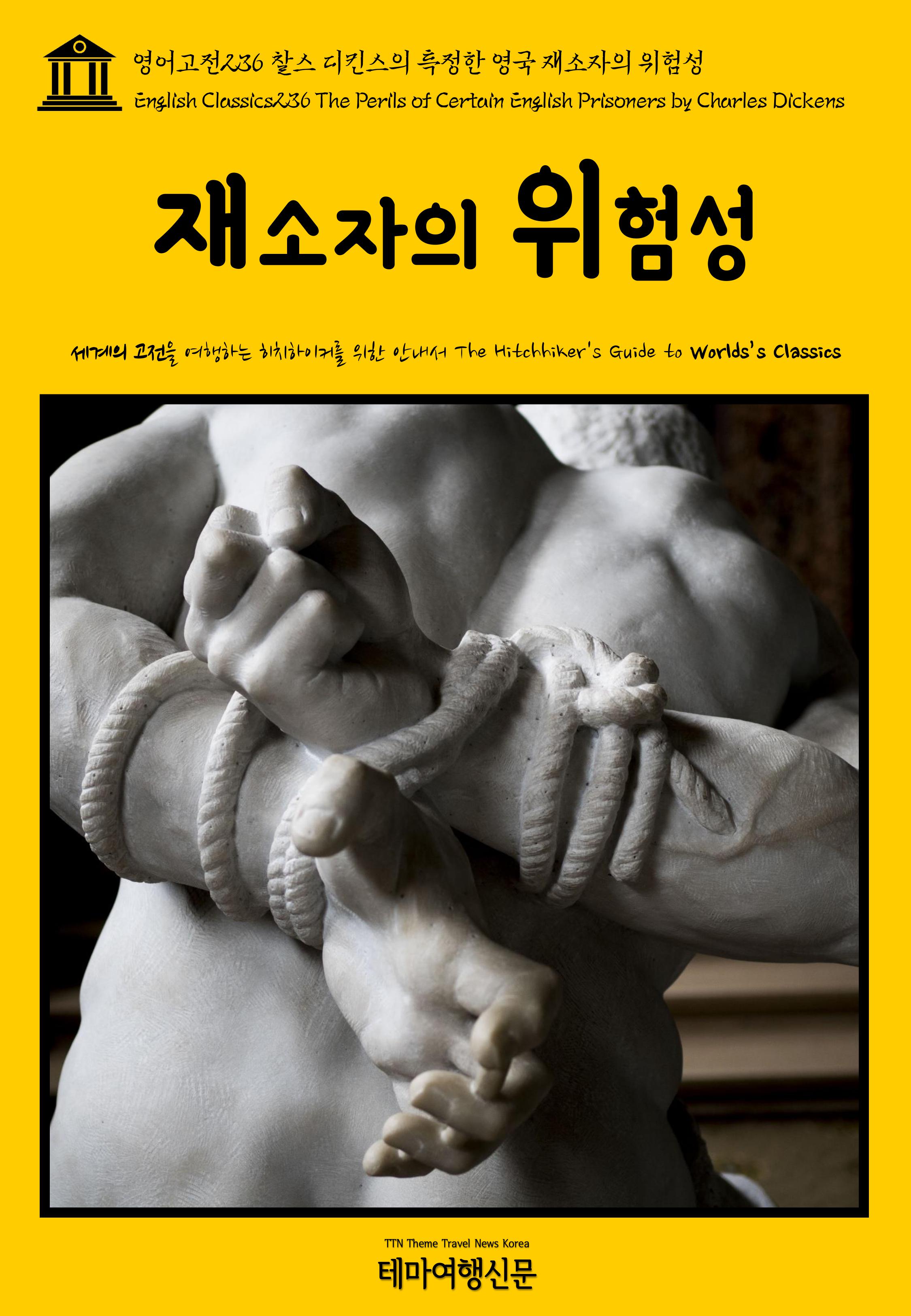찰스 디킨스의 해양 어드벤처 장르물(Maritime Adventure Books) : 특정한 영국 재소자의 위험성(The Perils of Certain English Prisoners by Charles Dickens)(1857)은 영국의 인도 식민 통치 시기 발생한 세포이 항쟁(Indian Rebellion of 1857)에 영감을 얻어 집필한 작품으로 찰스 디킨스와 1장(Chapter I)과 3장(Chapter III)을, 윌키 콜린스가 2장(Chapter II)을 집필하였습니다. 당시 유행했던 로빈슨 크루소(Robinson Crusoe)(1719)와 보물섬(Treasure Island)(1883) 류의 해양 어드벤처 장르물(Maritime Adventure Books)입니다. 테마여행신문 TTN Korea 영어고전(English Classics)과 함께 어제도, 오늘도, 내일도 멋진 문학여행을! B
반란(Munity) VS 독립 운동(Independence War) : 세포이 항쟁(Indian Rebellion of 1857)은 영국의 오랜 지배를 받은 인도에서 인도인 용병 집단의 주도 하에 발발한 항쟁으로, 인도 독립 운동의 근간을 이루는 중요한 사건입니다. 인도는 1947년에야 비로소 영국으로부터 독립을 쟁취하였습니다만, 동인도 회사가 고용한 인도인 용병이 영국군을 쫓아내는데 일조한 것은 역사의 아이러니가 아닐 수 없습니다. 세포이 항쟁(Indian Rebellion of 1857)은 영국의 입장에서는 반란(Munity)로, 인도의 입장에서는 독립 운동(Independence War)으로 볼 수 있으며 항쟁은 중립적인 표현입니다. 찰스 디킨스는 전형적인 친영파 작가로써 이를 무장반군의 반란(Munity)이라고 인식하였는데, 그의 견해가 특정한 영국 재소자의 위험성(The Perils of Certain English Prisoners by Charles Dickens)(1857)란 작품의 해적으로 구체화하였습니다. 찰스 디킨스가 보건데 그들은 영국군이 점령한 섬을 감히 영국 여왕의 동의 없이 습격하였을 뿐 아니라, 영국의 자산인 은을 함부로 약탈하였을 뿐 아니라, 영국 법정의 허락도 구하지 않고 사람들을 무참히 살해하는 불량집단입니다.
감히 영국 여왕의 은광을 침략한 해적! 그들의 운명은?! : 실버 스토아 섬(The Island Of Silver-Store)은 영국군이 점령한 은광 채굴지로써, 수출을 위한 항구가 건설되어 있고, 이 과정에서 원주민들을 대거 강제 노역에 동원하고 있습니다. 물론 현지의 친절한 원주민(friendly Indians)은 영국군의 지배에 감사하기에 그들에게 한없이 협조적인 이들로 묘사됩니다.
The Island was occupied by a very small English colony. It had been given the name of Silver-Store. The reason of its being so called, was, that the English colony owned and worked a silver-mine over on the mainland, in Honduras, and used this Island as a safe and convenient place to store their silver in, until it was annually fetched away by the sloop. It was brought down from the mine to the coast on the backs of mules, attended by friendly Indians and guarded by white men; from thence it was conveyed over to Silver-Store, when the weather was fair, in the canoes of that country; from Silver-Store, it was carried to Jamaica by the armed sloop once a-year, as I have already mentioned; from Jamaica, it went, of course, all over the world.
작품에 생략된 2장(Chapter II)에서는 주인공이 해적으로부터 탈출하는 모험담이 펼쳐집니다. 탈출한 주인공이 이야기하는 해적에 대한 묘사는 다음과 같습니다.
Who were they? The barbarous Pirates, scum of all nations, headed by such men as the hideous little Portuguese monkey, and the one-eyed English convict with the gash across his face, that ought to have gashed his wicked head off? The worst men in the world picked out from the worst, to do the cruellest and most atrocious deeds that ever stained it? The howling, murdering, black-flag waving, mad, and drunken crowd of devils that had overcome us by numbers and by treachery? No. These were English men in English boats?good blue-jackets and red-coats?marines that I knew myself, and sailors that knew our seamen! At the helm of the first boat, Captain Carton, eager and steady. At the helm of the second boat, Captain Maryon, brave and bold. At the helm of the third boat, an old seaman, with determination carved into his watchful face, like the figure-head of a ship. Every man doubly and trebly armed from head to foot. Every man lying-to at his work, with a will that had all his heart and soul in it. Every man looking out for any trace of friend or enemy, and burning to be the first to do good or avenge evil. Every man with his face on fire when he saw me, his countryman who had been taken prisoner, and hailed me with a cheer, as Captain Carton’s boat ran in and took me on board. Chapter III. The Rafts On The River
현대적인 관점에서 보건데 본 작품은 영국 해병(the Royal Marines)의 길 데이비스(Gill Davis)의 시점으로 진행됨에 따라 원주민들의 문명은 간과하고 영국과 식민 지배를 미화하고 있으며, 인종차별적인 관점이 포함한다는 시대적인 한계는 있습니다. 작품에 생략된 2장(Chapter II)에서는 주인공이 해적으로부터 탈출하는 모험담이 펼쳐집니다. 현대적인 관점에서 보건데 본 작품은 영국 해병(the Royal Marines)의 길 데이비스(Gill Davis)의 시점으로 진행됨에 따라 원주민들의 문명은 간과하고 영국과 식민 지배를 미화하고 있으며, 인종차별적인 관점이 포함한다는 시대적인 한계는 있습니다.
But, I must likewise confess, that I was not in a particularly pleasant humour, when I stood under arms that morning, aboard the Christopher Columbus in the harbour of the Island of Silver-Store. I had had a hard life, and the life of the English on the Island seemed too easy and too gay to please me. “Here you are,” I thought to myself, “good scholars and good livers; able to read what you like, able to write what you like, able to eat and drink what you like, and spend what you like, and do what you like; and much you care for a poor, ignorant Private in the Royal Marines! Yet it’s hard, too, I think, that you should have all the half-pence, and I all the kicks; you all the smooth, and I all the rough; you all the oil, and I all the vinegar.” It was as envious a thing to think as might be, let alone its being nonsensical; but, I thought it. I took it so much amiss, that, when a very beautiful young English lady came aboard, I grunted to myself, “Ah! you have got a lover, I’ll be bound!” As if there was any new offence to me in that, if she had!





